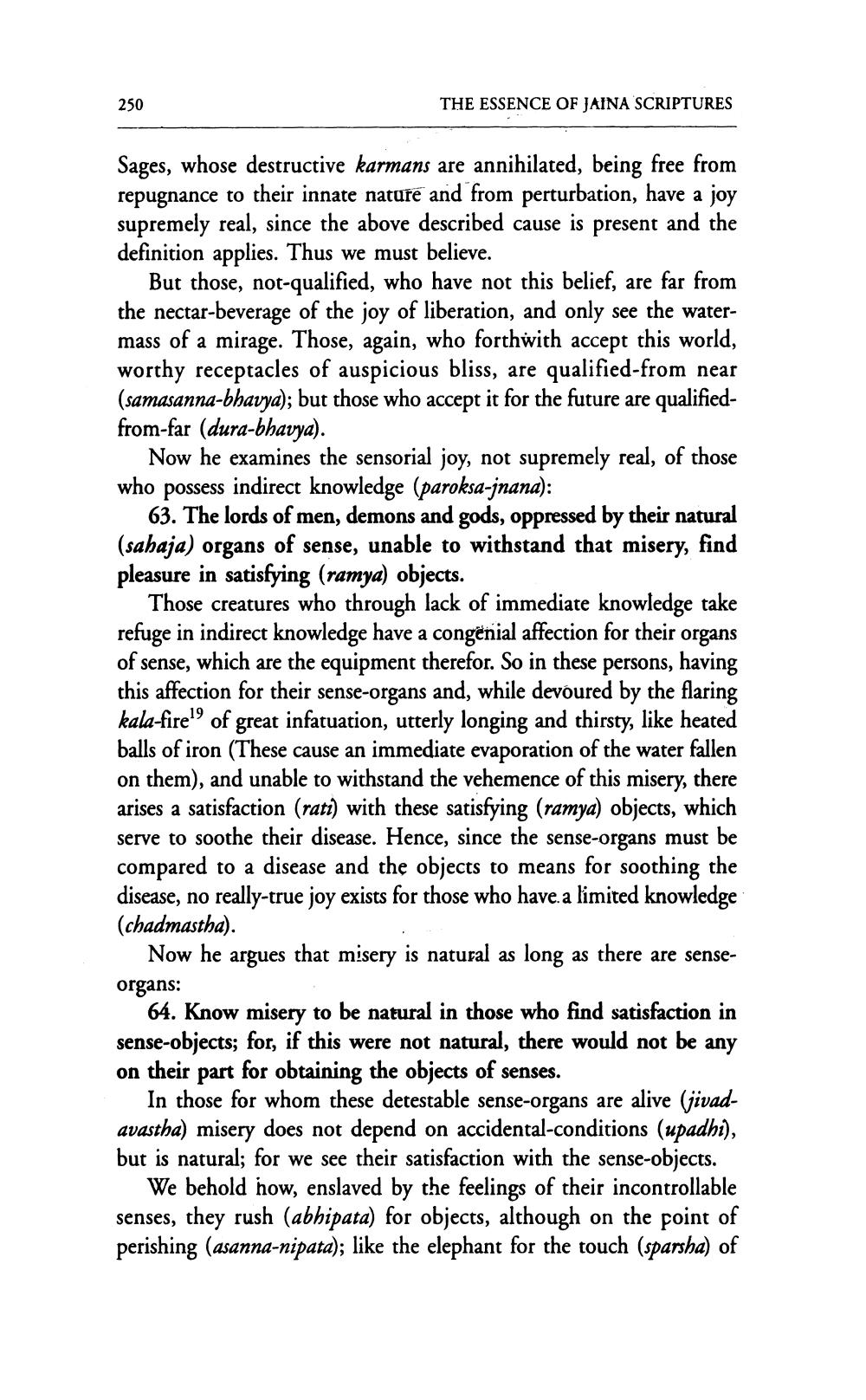________________
250
THE ESSENCE OF JAINA SCRIPTURES
Sages, whose destructive karmans are annihilated, being free from repugnance to their innate nature and from perturbation, have a joy supremely real, since the above described cause is present and the definition applies. Thus we must believe.
But those, not-qualified, who have not this belief, are far from the nectar-beverage of the joy of liberation, and only see the watermass of a mirage. Those, again, who forthwith accept this world, worthy receptacles of auspicious bliss, are qualified-from near (samasanna-bhavya); but those who accept it for the future are qualifiedfrom-far (dura-bhavya).
Now he examines the sensorial joy, not supremely real, of those who possess indirect knowledge (paroksa-jnana):
63. The lords of men, demons and gods, oppressed by their natural (sahaja) organs of sense, unable to withstand that misery, find pleasure in satisfying (ramya) objects.
Those creatures who through lack of immediate knowledge take refuge in indirect knowledge have a congënial affection for their organs of sense, which are the equipment therefor. So in these persons, having this affection for their sense-organs and, while devoured by the flaring kala-fire" of great infatuation, utterly longing and thirsty, like heated balls of iron (These cause an immediate evaporation of the water fallen on them), and unable to withstand the vehemence of this misery, there arises a satisfaction (rati) with these satisfying (ramya) objects, which serve to soothe their disease. Hence, since the sense-organs must be compared to a disease and the objects to means for soothing the disease, no really-true joy exists for those who have.a limited knowledge (chadmastha).
Now he argues that misery is natural as long as there are senseorgans:
64. Know misery to be natural in those who find satisfaction in sense-objects; for, if this were not natural, there would not be any on their part for obtaining the objects of senses.
In those for whom these detestable sense-organs are alive (jivadavastha) misery does not depend on accidental-conditions (upadhi), but is natural; for we see their satisfaction with the sense-objects.
We behold how, enslaved by the feelings of their incontrollable senses, they rush (abhipata) for objects, although on the point of perishing (asanna-nipata); like the elephant for the touch (sparsha) of




